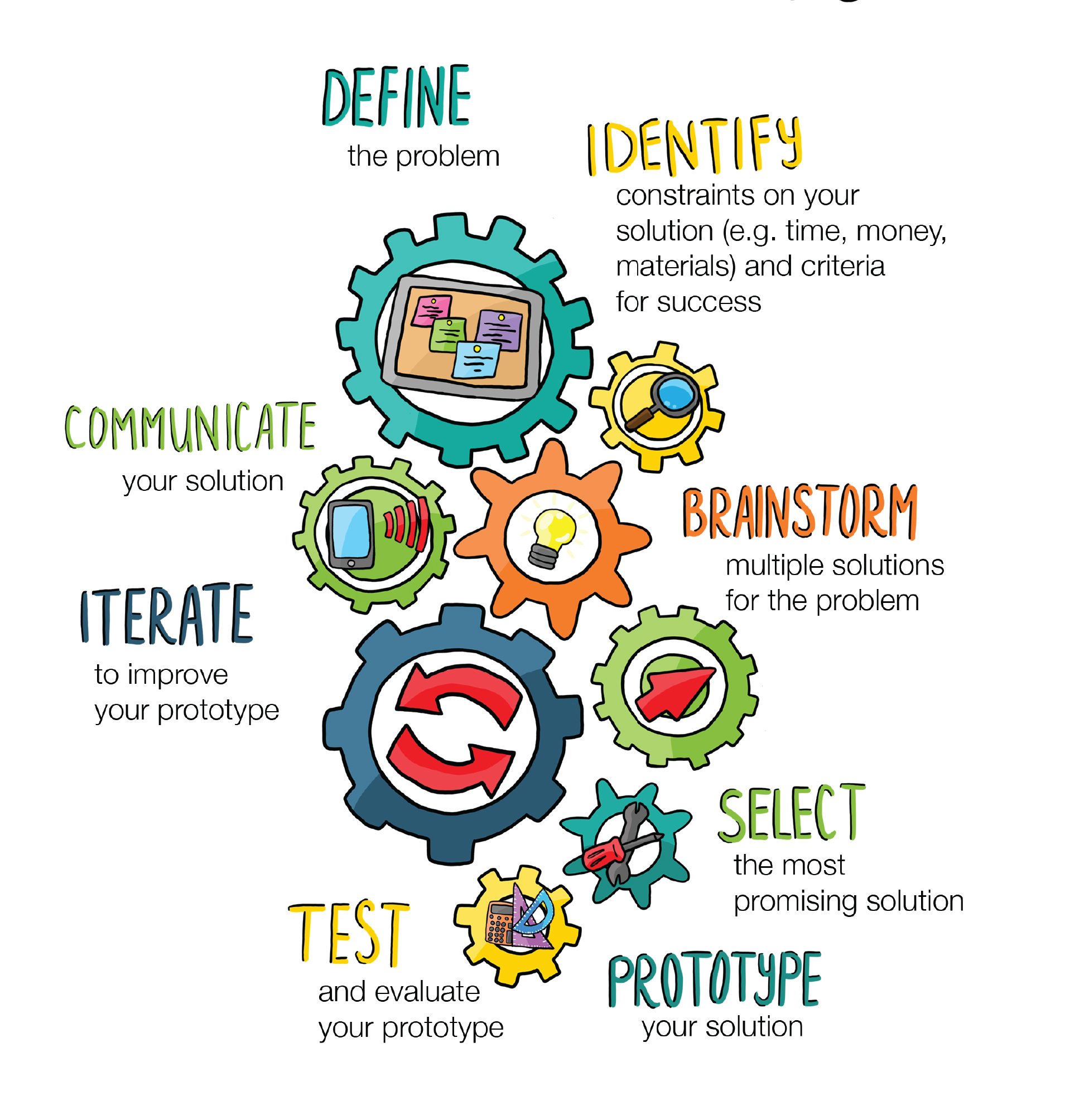ISK’s STEM Pathways course is an independent study aimed at self-motivated students interested in STEM subjects. In this course students’ will identify and engineer solutions to solve real world problems of global significance. These multi-disciplinary, collaborative projects provide opportunities for deeper learning. Together with a mentor, students navigate the messiness of the creative process from inception to completion by prototyping and testing. This is a standards based course with a focus on engineering design to integrate science, mathematics and technology. The course itself is designed to provide students with opportunities for experiential, personalized and integrated learning.
Featured Project:
The Design Process
Students use the Design Cycle as the framework for their process journal documentation which is also the major assessment component. The students do not need to follow any specific template, however, they need to show evidence of all major components of the the design process.

Learning Pathways
Integrated Learning
This course aims to integrate science, mathematics, technology and engineering knowledge and skills. Since each student project is unique based on their choice of topic there is scope for further integration into other areas, such as, the arts and languages.
To ensure academic rigour student projects will use academic standards from NextGenerationScienceStandards (Science and Engineering), International Society for Technology Integration (Technology) and Common Core (Mathematics) to guide their learning journey and assess their work.
Personalized Learning
The STEM Pathways course empowers learners to personalize their learning journey. They have full autonomy over the choice of their project and must take ownership in identifying a global issue they wish to investigate independently. After identifying the global issue they wish to tackle, learners will define a manageable problem they will solve.
The student will select standards from the STEM disciplines that must be satisfied (according to their personalized rubric) to gain credit. The assessment standards are tailored to the student’s real world problems and their ability, giving them choice and empowering their own learning. They also have input into the pace at which they move through the course. They must follow broad deadlines decided by the mentor but have control in how they progress through the engineering process.
Experiential Learning
Students’ will be guided to engage in authentic contexts that involve experiential learning. The details of the experiential learning experiences will be dependent on the project chosen. Students’ can engage with business and look for partnerships related to their research area in the community. Students’ could develop their solutions and ideas with stakeholders in the community. From meeting camel herders to airplane pilots, the community becomes the classroom.
Desired Outcomes
Enduring understanding
Solving real world problem using the design process
Essential questions
How can the STEM disciplines help me solve a real world problem?
How can I build relationships in the community to solve a real world problem?
How can I communicate the design process to a suitable audience?
Standards
Mathematics – Common core
Science and Engineering – Next Generation Science Standards (NGSS)
Technology – International Society for Technology in Education (ISTE)